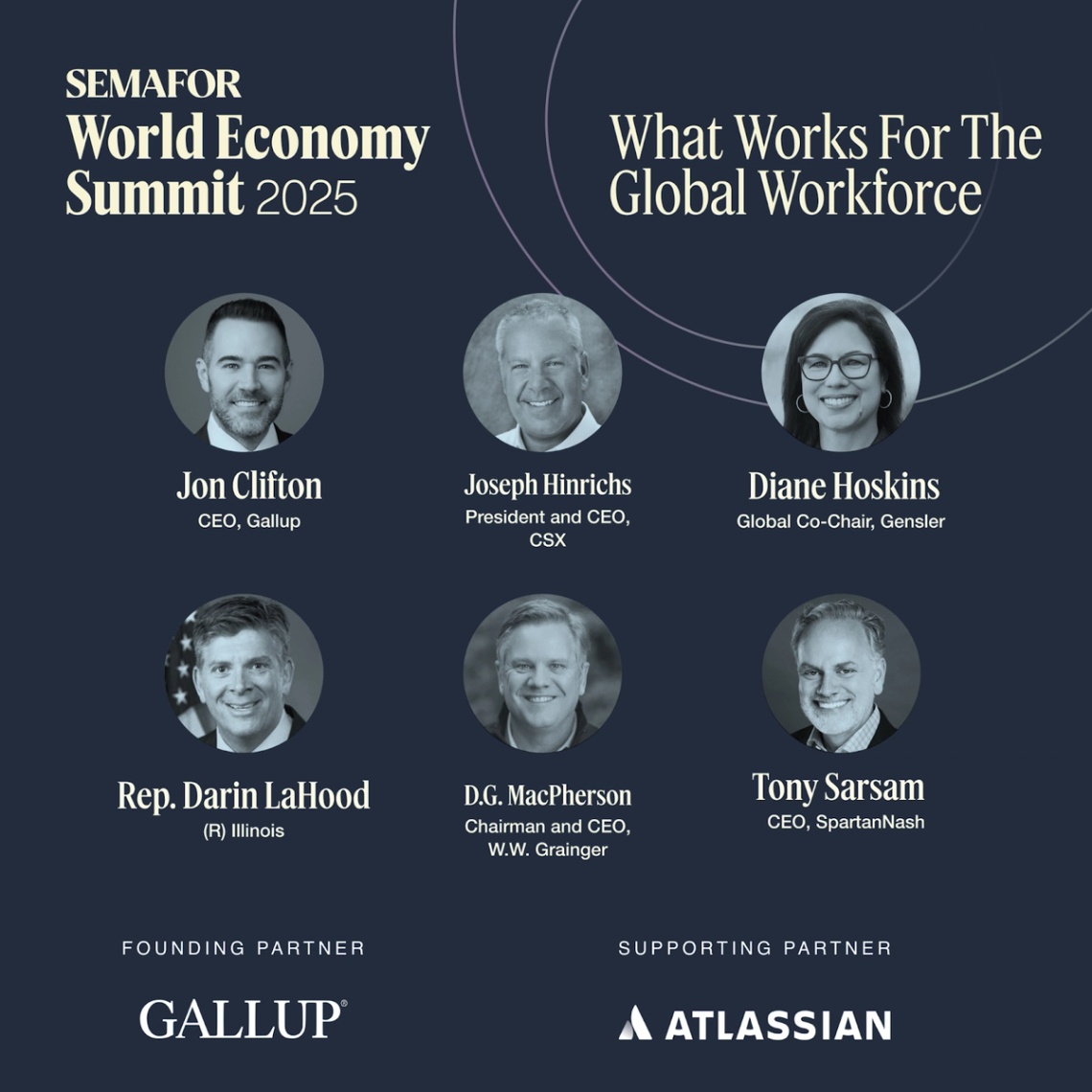 Jon Clifton, CEO, Gallup; Joseph Hinrichs, President and CEO, CSX; Diane Hoskins, Global Co-Chair, Gensler; Rep. Darin LaHood, (R) Illinois; D.G. MacPherson, Chairman and CEO, W.W. Grainger; Tony Sarsam, CEO, SpartanNash and more, will join the What Works for the Global Workforce session at the 2025 World Economy Summit. As talent retention, recruitment, and workplace culture evolve in response to economic and technological shifts, this session explores how employers, workers, and policymakers can create win-win dynamics that meet the needs of a changing labor landscape. April 25, 2025 | Washington, DC | Learn More |